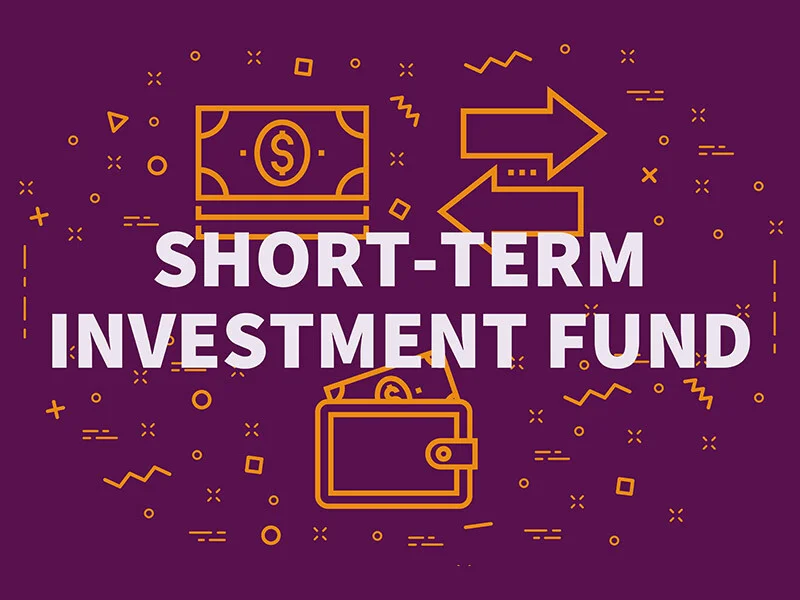Investors seeking capital preservation frequently prioritize low-risk investments including cash, money markets, certificates of deposit, and bonds.
Short-term bonds are the safest kind of debt instruments owing to their short tenure and consequent near-cash status. Shorter length or maturity dates reduce credit and interest rate risk.
Short-term bonds appeal to conservative investors due to their ability to lessen volatility. Mutual funds in the short-duration bond category achieve this diversity by investing in high-quality bond holdings from a variety of issuers, sectors, and geographies.
1. The Vanguard Short-Term Investment-Grade Fund (VFSTX)
- Average total return: 2.55%
- 30-day yield: .97%
- Expense ratio: 0.2%
The portfolio provides diversity via geographical exposure, credit quality, and bond issuer type. The Vanguard Short-Term Investment-Grade Fund, established in 1982, intends to deliver current income to investors while minimizing price volatility.
Fund managers invest heavily in high-quality fixed-income securities, with at least 80% allocated to short and intermediate-term debt issues. As of June 30, 2020, the mutual fund invested 17.9% in commercial mortgage or asset-backed securities and 3.9% in Treasury or agency bonds.1
The fund presently oversees $66.8 billion in investor assets across 2,427 holdings. As of October 2023, it has produced a 10-year average annualized total return of 2.55%.2 The fund has an expense ratio of 0.2%, much lower than the category average of 0.74%.
Investors may purchase shares without an upfront sales load, and there is no fee when shares are redeemed. The fund's 30-day Securities and Exchange Commission (SEC) yield was 0.97% as of October 6, 2020. It demands a minimum initial commitment of $3,000. Admiral shares are available for investments of $50,000 or more, with an expense ratio of about 0.1%.3
2. The DFA Short-Term Extended Quality Portfolio (DFEQX)
- Average total return: 2.96%
- 30-day yield: 1.44%
- Expense ratio: 0.33%
The DFA Short-Term Extended Quality Portfolio, formed in March 2009, aims to provide investors the highest overall return on debt securities.4 Fund managers allocate at least 80% of their portfolio to fixed-income assets of investment-grade quality. The fund may invest up to 25% of its assets in bonds, bills, and notes issued by the US Treasury, government agencies, or federal instrumentalities.
On October 6, 2023, the fund's bonds had an average maturity of 1.44 years. The average effective duration was 1.37 years. In 2019, the fund changed to shorter maturities, most likely due to lowering interest rates. Lower maturities normally result in lower rates, and the 30-day SEC yield has dropped to.33%.
The mutual fund handled $6.2 billion in investor assets. It has a ten-year average annualized return of 2.06% as of October 2020. The mutual fund has an expense ratio of 0.22%, which is lower than the category average. Investors may acquire shares without any upfront or deferred sales charges.
3. The iShares Short-Term Corporate Bond ETF (IGSB)
- Average total return: 2.30%
- 30-day yield: 2.40%
- Expense ratio: 0.06%
The iShares Short-Term Corporate Bond ETF debuted in January 2007, giving it an impressive pricing and performance history for an ETF.6 The fund's goal is to replicate an index of short-term US investment-grade corporate bonds. Because the fund excludes government bonds, it offers a higher yield and is somewhat more volatile.
As of October 6, 2020, the fund's assets were $20.3 billion, with an average daily volume of 2.14 million shares exchanged. The fund's market size assures low spreads, which is an important consideration for bond ETFs.
Over the 10 years ending October 2020, the average total return was 3.04% each year. The 30-day SEC yield was 0.92% on October 6. Fees are modest, at just 0.06%. This fund does not have any sales loads or minimum investment limitations.
4. The Fidelity Short-Term Bond Fund (FSHBX)
- Average total return: 1.98%
- 30-day yield: 1.98%
- Expense ratio: 0.45%
The Fidelity Short-Term Bond Fund has an inception date of March 1986, and the fund seeks to obtain a high level of current income for investors.7 With the preservation of capital in mind, fund managers invest at least 80% of the portfolio in investment-grade debt securities or repurchase agreements.
The investment mix includes domestic and foreign issuers, with 53.17% invested in corporate issuers, 18.60% in U.S. Treasury bonds, and 15.07% in asset-backed securities (ABS). The fund has accumulated $3.2 billion in assets as of Oct. 6, 2020.
The mutual fund generated an average annual total return of 1.75% over the last ten years. Coincidentally, the fund also had a 30-day yield of 0.52% on Oct. 6, 2020. The mutual fund has an expense ratio of 0.45%, in line with the majority of short-term bond mutual funds. The fund does not charge an upfront or deferred sales load, and there is no minimum investment requirement.
5. The Schwab Short-Term Bond Index Fund (SWSBX)
- Average total return (since inception): 3.16%
- 30-day yield: .31%
- Expense ratio: 0.06%
The Schwab Short-Term Bond Index Fund aims to give investors with high current income.8This mutual fund monitors the performance of the Bloomberg US Government/Credit: The 1-5 Years Index involves investing a significant portion of portfolio assets in debt instruments based on the benchmark. Fund managers target investment-grade debt securities with fixed or variable interest rates and varying maturities.
The fund is very young, having been established on February 23, 2017. However, the underlying assets and approach used in this fund make it an excellent pick for the fixed-income component of any portfolio.
SWSBX has $1.8 billion in assets as of October 2, 2020. The cost ratio of 0.06% is incredibly low, as expected of an index fund. The fund's 30-day yield was 0.31%, owing mostly to its 67% investment in lower-yielding government and agency bonds. Investors are not charged a sales load when purchasing or redeeming, and there is no minimum investment.
